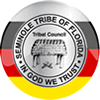Welcome to Purple Pawn, covering games played around the world by billions of people every day.
 Over 200 Indian gambling operations produce more income than Las Vegas and Atlantic City combined. The largest sites are currently in the Northeast, namely the Foxwood Casino in Connecticut (which, like all American casino operations, has been hit by the economy). Jack Abramoff also didn’t do Indian casinos any good.
Over 200 Indian gambling operations produce more income than Las Vegas and Atlantic City combined. The largest sites are currently in the Northeast, namely the Foxwood Casino in Connecticut (which, like all American casino operations, has been hit by the economy). Jack Abramoff also didn’t do Indian casinos any good.
These gambling operations have been one of the best sources of income for Native American tribe members, but have not been without controversy:
- Gambling itself is still controversial to many people; not so much when it takes the money from the wealthy, but when it takes too much money from middle-class or low-income gamblers.
- Native American teens can get addicted to gambling, as they sometimes get addicted to alcohol, owing to the independence of tribal jurisdiction laws.
- Also due to independent jurisdiction, non-Indian operations complain about unfair competition.
- Owing to the large amount of money involved, there are fears of criminal interference and corruption.
And other controversies. Many of these have been addressed by federal legislation over the past few decades. For instance, other than small-stakes traditional games, gambling must also comply with the laws of state and be run in agreement with the state. Typically, this results in a massive amount of profit for the state. See Wikipedia for more information.
Anyhoo, Florida’s Seminole tribe’s gambling establishments were the first. Now, the Seminal tribe has reached a deal with Florida governor Charlie Christ, which would send $6.8 billion to Florida over 20 years in return for give the exclusive right to 7 Florida casinos to run card tables and games.
The deal still has to pass the state legislature, and faces opposition: legal, moral, and other. Trouble is, if the state turns it down, the federal government might just force it anyway, only this time without the state reaping a share of the profits.
(source)
No Comments
Sorry, the comment form is closed at this time.
Trending
- Massdrop.com
- Oh the Irony—Illuminati Card Game Continues to Inspire Conspiracy Theorists
- Footprints, an Educational Ecology Game
- Home
- USPS Adds Board Game Flat Rate Box
- Baila, the Estonian Drinking Card Game
- Crystal Caste Wins Dice Patent Suit Against Hasbro
- Mirror Game, Red and Blue
- Are Board Games Dangerous?
- Board Games Based on Hindu Mythology
Archives
Most Popular Articles
- Oh the Irony—Illuminati Card Game Continues to Inspire Conspiracy Theorists
- The 20 Most Valuable Vintage Board Games
- The Truth About Dominoes On Sunday in Alabama
- Sequence Game, and Variants
- USPS Adds Board Game Flat Rate Box
- Baila, the Estonian Drinking Card Game
- The 13 Most Popular Dice Games
- Are Board Games Dangerous?
- Guess Who? The Naked Version
- What Happened to the Jewel Royale Chess Set?
Recent Posts
- Toy Fair 2019—Breaking Games
- Talisman Kingdom Hearts Edition
- Toy Fair 2019—Winning Moves
- Toy Fair 2019—Games Workshop
- Toy Fair 2019—Star Wars Lightsaber Academy
- Toy Fair 2019—Stranger Things Games
- Toy Fair 2019—HABA
- Licensing Roundup
- Game Bandit
- 2018 A Difficult Year For Hasbro But Not For D&D Or MtG
Recent Comments
- on Toy Fair 2019—Winning Moves
- on Game Bandit
- on Second Look—Dungeons & Dragons Waterdeep Dragon Heist
- on Crowdfunding Highlights
- on Beyblade SlingShock
- on Game Bandit
- on Game Bandit
- on Watch This Game!, the Board Game Review Board Game
- on Second Look—Vampire: The Masquerade 5th Edition
- on Palladium Books Loses Robotech IP License, Cancels Five-Year-Overdue Robotech RPG Tactics Kickstarter




